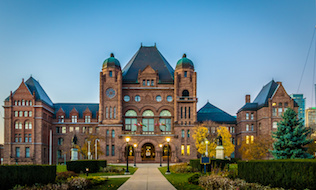

Ontario’s smallest companies will be saving on their employer health tax come Jan. 1, 2019.
The province’s 2018 economic outlook and fiscal review, presented by Finance Minister Vic Fedeli on Thursday, proposed an increase to the amount of payroll eligible for exemption from the employer health tax from $450,000 to $490,000 for organizations with 10 or fewer employees.
The increase, which is based on Ontario’s consumer price index, will only apply to private-sector employers. However, public and private-sector employers with payrolls above $5 million aren’t eligible for the exemption.
Read: Employer-paid benefits to be subject to new B.C. health tax
The move is expected to produce about $40 million in tax relief for employers in the province, reducing the employer health tax by an average of $690 for about 58,000 employers.
“It’s more of an accounting thing than a change for us from a benefits perspective,” says Gil McGowan, president of the Benefits Alliance Group Inc. “The savings for the average company is going to be $63 a month. It’s going to help a small company, like 10 employees. They’re going to save $750, $760 a year. It’s not a giant deal, but it’s still a savings.”
The increased exemption will come into effect on the same day as British Columbia begins levying a new health tax. The province, which announced the tax in July 2018, said employers with payroll costs below $500,000 will be exempt. Those with payroll between $500,000 and $1.5 million will pay 2.95 per cent on the portion exceeding $500,000 and employers with payroll costs over $1.5 million will pay a rate of 1.95 per cent.
Read: Saskatchewan reinstates tax exemption on health premiums
Saskatchewan introduced an exemption of a different sort earlier this year, reinstating its provincial sales tax exemption for life and health insurance premiums in February 2018.
In August 2017, the province had instituted a six per cent sales tax for all group benefits plans with life, accident and health insurance policies. The reinstatement of the exemption was retroactive to Aug. 1, 2017, with refunds to be paid out to those who had paid the tax.
